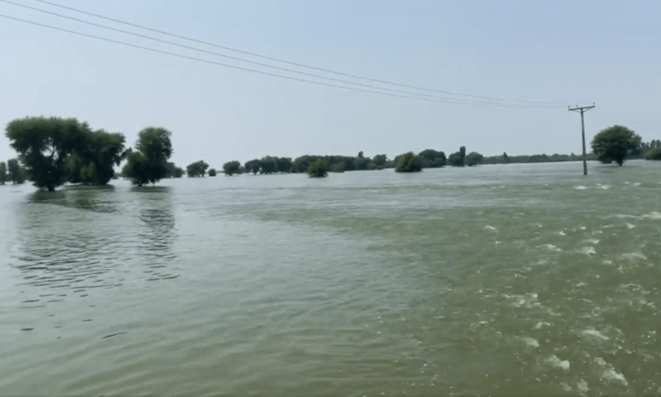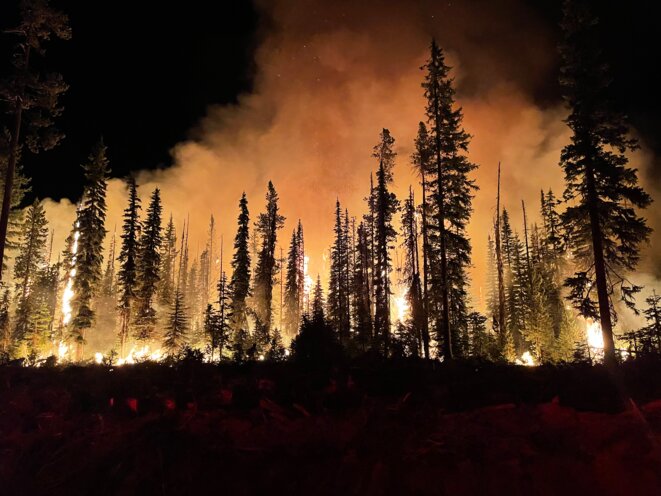
The reversal of globalization and the suite of crises, nationalisms and wars is reshaping the diplomatic scene into a tripartition evoking that of the Cold War. Climate diplomacy risks being a major victim. The dissensus of the rival blocs undermines the global consensus and the coordinated actions of the 175 signatory states of the conventions on global ecology, signed in Rio de Janeiro in 1992.
A climate diplomacy at a standstill?
Climate diplomacy is realistic. If it aims to limit climate change as much as possible, at the same time, it seeks to adapt us to new climates, an adaptation that will require more efforts if the reduction of greenhouse gas emissions remains insufficient. Progress and setbacks in this fight are discussed each year at a conference of the signatory countries of the climate convention. However, for the most part, the reduction of emissions depends on a small number of actors since China, the United States and the European Union emit more than half of the harmful gases.
Their relations are deteriorating to the point of calling into question their cooperation against climate change. Since the election of Barack Obama in 2008, the United States has gradually strained its relations with China, fearing that its growth, desired by Bill Clinton by integrating it into the WTO, would call into question its leadership. Barack Obama, Donald Trump and Joe Biden, beyond their deep differences, share the same will to curb the expansion of China, which attests to the importance of this issue for the North American elites.
Inevitably, this cooling of international relations has a negative impact on climate diplomacy. After the visit in August of the US No. 3 to Taiwan, Nancy Pelosi, China stopped talking one-on-one with the United States on climate.
Macky Sall’s example
In these troubled times, analogists too easily overlook the role of the non-aligned during the Cold War. The war in Ukraine, which boosts the tripartition of the world diplomatic scene, is a test of the capacities of the new non-aligned. When Russia's blockade of Ukrainian ports caused grain shortages and the threat of famine in Africa and Asia, Macky Sall, the President of the African Union and Senegal, flew to meet Vladimir Putin to unblock the blockade, opening the way for Turkey, the UN and the belligerents to restore navigation in the Black Sea.
Is there room for a non-aligned global ecology?
What assets do the non-aligned have to loosen the US-China grip on climate diplomacy? The Amazon and Congo river basins are strategic locations for climate change. Hence the choice of Rio de Janeiro in 1992 to sign the Climate Convention - the lush forests of the Amazon store impressive amounts of carbon. Tropical deforestation releases carbon and requires additional efforts to reduce emissions worldwide when all indications are that we will not succeed in meeting the objective of limiting the rise in temperatures to + 1.5°c compared to the pre-industrial era – this threshold will be crossed in the coming years unless, warns the IPCC, harmful emissions fall by 43% by 2030...
For climate justice
Can Latin America countries, mostly "non-aligned" revive climate diplomacy? This is the commitment of Gustavo Petro and Gabriel Boric, the new presidents of Colombia and Chile. The president of Argentina, Alberto Fernandez, joins their efforts. Eyes are now on Brasilia, which is awaiting the verdict of the presidential election in early October where Lula is the favorite. Marina Silva, an iconic figure in the struggles for the Amazonian rainforest, supports him and pushes for a " climate pact ". The ecological and diplomatic choices of the voters and of the future president of Brazil will be crucial to involve more broadly the Latin American continent and the non-aligned of the other continents.
Can the intelligentsias and the research institutions strenghten this dynamic? Backed by a global networks of researchers who have been documenting climate change for forty years, the heads of universities in these countries are debating their involvement.
Can the non-aligned successfully defend climate justice? Climate change accentuates inequalities between the most opulent and the most deprived. With the desertification of drylands, monsoons evolving into deluges, cyclones and typhoons more destructive, climatic change disproportionately affects the inhabitants of tropical and equatorial areas who have fewer means to adapt than those of the affluent countries – a state of affairs all the more unfair as rich countries bear the greatest responsability for the overload of the greehouse effect and global warming, by having built their indistrialization with technologies that massively burn carbon- based fossil fuels.
The earth-system is a living megaorganism. The skies and the oceans react to our excesses more and more vividly. Billions of humans are hit by the plagues of heat waves, hurricanes, fires or floods, Can the non-aligned limit the damage, launch a bridge between rival blocks and bring reason and justice back into the way we inhabit the earth?
We hope so.
Alfredo Pena, Researcher-Profesor, IIAC-EHESS, Scientific Director Global Youth Pact, and Jean-Marc Salmon, social scientist.




